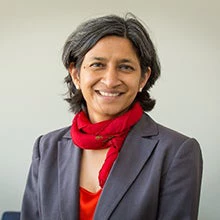 Un groupe de diplômés universitaires heureux se tenant en rang. Copyright (c) 2014 michaeljung/Shutterstock
Un groupe de diplômés universitaires heureux se tenant en rang. Copyright (c) 2014 michaeljung/Shutterstock
Most of us remember being asked as a child, what do you want to be when you grow up? Many of us would eagerly answer: a teacher, an engineer, a scientist. As we grew older, we realized that pursuing any of these essential jobs in the 21st century requires higher levels of education. Tertiary education has become the aspiration of more and more young people around the globe while at the same time a fundamental requirement for employment in the sectors and industries that drive development in every country.
At the World Bank, we encourage countries to strengthen their tertiary education systems to build the professional expertise necessary to drive public and private sector development; to produce the doctors, nurses, teachers, scientists, managers and so on needed to support growing economies.
We have been engaged in tertiary education reforms since 1963; currently, the Bank has an active portfolio of over US$9 billion in projects supporting post-secondary education efforts across all regions. This makes the World Bank the largest external source of funding for tertiary education in the world.
As we build upon decades of learning and experience in tertiary education reform, we continue to ask ourselves key questions to ensure we are grounding our work in the current conditions and with a focus on outcomes that can best serve our clients.
Four of these key questions are:
1. Should low-income countries invest public resources in tertiary education, including research, even when resources are needed to strengthen primary and secondary education as well?
Yes. Economic research unequivocally demonstrates high rates of private and social return on investments in tertiary education, including research. The benefits include higher employment and earnings, increased productivity and innovation, greater social stability, more effective public administrations, increased civic engagement, and better health outcomes. And these outcomes are critical for low-income countries’ development today, in the same way they were for today’s rich countries when they were much poorer 200 or even 1,000 years ago when they started investing in tertiary education.
The consequences of underinvesting in tertiary education include loss of talent, limited access to applied research capacity needed for local problem solving, hindered economic growth due to low levels of skills in the workforce, low-quality teaching and learning at every level of education, and, perhaps most glaringly, expanded wealth inequality both within countries and among nations, with those investing more experiencing higher levels of innovation and attraction of investment.
There is ample evidence of the role of education, including tertiary education, has played in boosting economic growth. One such example is the Republic of Korea which in 1948, was one of the poorest countries in the world. It grew to be the world’s 15th richest economy, however, by investing in and strengthening education at all levels, including providing universal access to tertiary education. Interestingly, already in the early 1980s, Korea started placing higher education in a lifelong learning context and has reaped the benefits of this decision ever since.
2. Should digital skills and digital technologies be part of the investments made in tertiary education in low-income countries?
Yes. Digital technology and capabilities are essential to more resilient tertiary education systems. The COVID-19 pandemic has clearly revealed that digital technologies are the primary instrument for resilience in tertiary education, and that all types of tertiary education institutions will need to embrace and adapt to remote delivery and online settings. The expansion of ‘Open Universities’ around the world—including in Turkey, Tanzania, and Zimbabwe, for example—reflects the access and delivery opportunities afforded by embracing digital delivery in tertiary education. Building individual- and organizational-level digital skills can support: high-quality, adaptive teaching for students; new opportunities in digital research tools and methods; and digital competences. Without investments in digitalization and digital skills, individuals and systems will fall further behind, as has been exposed by the shifts in education delivery forced by the COVID-19 pandemic: in Sub-Saharan Africa, where over 80% of tertiary education students do not have access to reliable internet, the shift to on-line education during lockdown was not sustainable.
3. Will the sustained expansion of accessibility ensure the closing of equity gaps in tertiary education?
No, not without further measures including a combination of merit- and need-based approaches to student support and a diversity of other options. To date, tertiary education expansion has generally not meant equitable access—that is, more students accessing tertiary education globally has not resulted in proportionally more students enrolling from low socioeconomic status or underrepresented groups.
To address these issues, countries need to have deliberate and sound policies to concomitantly enable access to disadvantaged groups such as means-based scholarships, grants and student loan programs, and remedial intervention to ensure readiness for postsecondary studies. Moreover, countries should foster the development of a high-quality ecosystem of tertiary education with a variety of options and flexible pathways, including high-quality, short-cycle tertiary education programs, as has been developed with long-term benefits in California, for instance, via the “Master Plan for Higher Education” and in many countries in Central and Eastern Europe, including Hungary, Slovenia, and the Czech Republic.
4. Should countries invest in tertiary education only after they can ensure jobs for graduates?
No. The march of technology, the emergence of big data, AI and other elements of the ‘fourth’ industrial revolution are changing the nature of production and work all over the world. Countries with a workforce lacking the required skills are less likely to keep up with technological advancement - as well as R&D-intensive domestic or foreign investments. Moreover, there is a lag in the response in the supply of tertiary graduates to the labor market demand from firms. Investments and policy reforms to improve other important aspects of the investment climate such as infrastructure, taxes, and regulations, can take a shorter time than to produce an adequately skilled supply of graduates. While this lag may seem troubling, perceptions of social unrest increasing when there are greater numbers of un- or under-employed educated people can make some policy makers look to delaying investments in tertiary education. However, there is little rigorous evidence that bears out this anecdotal perception that improved education in environments lacking opportunities leads to unrest. Moreover, the alternative is simply unacceptable—no country should forgo developing the skills of its people as highly as possible in a globe dominated by knowledge economies. Limiting education results in limited development—it’s as simple as that.
Every government must be purposeful in supporting and steering its tertiary education systems, including universities, polytechnics, community colleges, and other institutions, to build the human capital vital to the 21st century knowledge economy. As hubs for advanced education and skill development in every country, regardless of GDP and income status, these institutions have the potential to produce the skilled workers and leaders needed to create stable foundations for sound governance and dynamic economic growth, and address pressing challenges like global pandemics and climate change to promote opportunities today and into the future. The World Bank will continue to advance its support for the global tertiary education sector to prepare systems and institutions for the challenges of the 21st century.





Join the Conversation